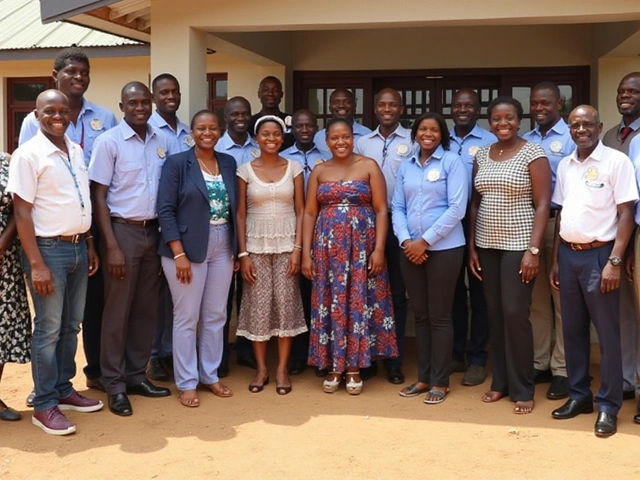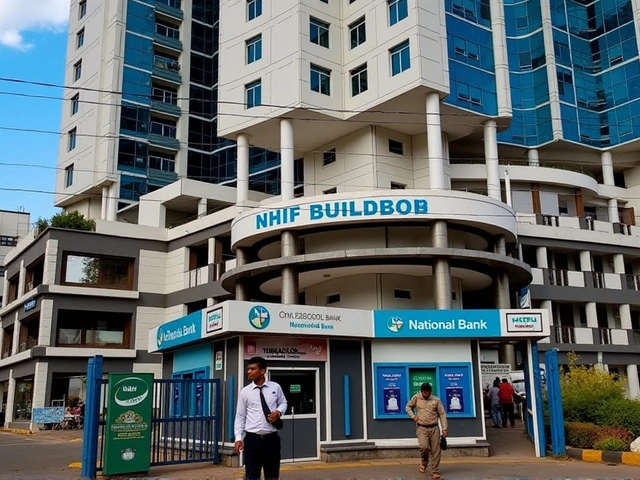Resit Sparks Outrage Across the Southeast
Tensions are running high in Nigeria’s Southeast as the Ohanaeze Ndigbo Youth Council takes a firm stand against the Joint Admissions and Matriculation Board (JAMB). The spark? A fresh round of the Unified Tertiary Matriculation Examination (UTME) rescheduled for several candidates in the region after a wave of technical issues marred the original test dates. It’s not just about lost time or frustration. The Ohanaeze youth claim this move is a double blow for students who already faced enough hurdles the first time around.
National President Mazi Okwu Nnabuike didn’t mince words. He called JAMB’s order for a resit “totally unacceptable,” describing the repeated exam process as a “new round of mental torture.” For many Southeast families, the implications run much deeper than missed answers or delayed results. Having to organize another exam means pulling together extra cash for transport and preparations—a real stretch for households that are already feeling the pinch financially.
But there’s more to it. Okwu raised a point that’s hard to ignore: safety. Given all that’s going on in the region security-wise, he says it’s simply not fair to ask families to send their teenagers out on the road again for a retest. Many parents are worried about exposing their kids to risks, and who can blame them?
There’s also the psychological toll. Students who geared up for months, sat through the tension of the glitch-ridden exams, coped with UTME “fake results,” and navigated tech malfunctions now have to muster the willpower to do it all over again. It’s the kind of setback that can flatten even the most determined students. Ohanaeze describes this as “mental torture” and claims it sends the wrong signal about how the system values these young people from the Southeast.

Mix of Frustration and Determination
Not everybody walked away from the resit devastated. Some students reported that the new round of exams, to their surprise, featured more straightforward questions and fewer glitches. Still, relief about technical improvements doesn’t erase the emotional strain or doubts about why the resit was necessary in the first place. Who wants to relive a stressful exam week after feeling tossed aside by technology?
Ohanaeze Ndigbo isn’t backing down. They’re doing more than just speaking out—they’ve threatened to take legal action if JAMB doesn’t reverse its decision. The group isn’t asking for just a fair shake; they’re demanding compensation in the form of automatic 300 scores for every affected Southeast candidate. To them, the resit isn’t just a bump in the road—it’s a “systemic injustice.”
Behind the tough talk is a sense that students from the region are facing an uneven playing field. JAMB admitting to technical glitches hasn’t exactly put parents and students at ease. Some feel singled out, wondering if their region’s candidates would get treated the same way elsewhere in the country. The possibility of a court battle adds a new twist to an already heated debate.
For many young people in the Southeast, the UTME is more than just an exam. It’s a shot at university, a chance to break cycles of hardship, or even a family’s big hope for a brighter future. That’s why arguments over resit policies and calls for automatic scores strike such a sharp chord. This isn’t just about paperwork—it’s about the dreams and practical realities facing an entire region’s future students.







19 Comments
The resit undermines the equity of the admission process.
While the surface narrative paints the resit as a bureaucratic blunder, one might contemplate the deeper sociocultural currents that ripple through such decisions; perhaps the system is inadvertently echoing historic disenfranchisement. In this light, the demand for automatic 300 points reads not merely as compensation but as a symbolic reclamation of agency. The dialectic between institutional authority and regional aspirations becomes a mirror reflecting collective anxieties. Yet, the discourse seldom acknowledges the latent resilience that these students have cultivated amid adversity. Hence, the conversation should pivot from punitive blame to constructive empowerment.
Indeed, the very notion of a "resit" summons a cascade of emotional upheavals!!! The corridors of academia reverberate with the cries of students-who once dared to hope, only to be shackled by technical glitches, by bureaucratic inertia, by the cold indifference of distant administrators!!! One cannot help but exclaim: this is not a mere administrative adjustment; it is a profound moral transgression, a betrayal of trust, a violation of the social contract that promises equitable opportunity!!! The demand for a 300-point restitution, therefore, transcends arithmetic-it becomes a litmus test of societal conscience!!!
Oh sure, because adding 300 points magically erases all the sleepless nights and travel expenses-makes perfect sense, doesn’t it?
While sarcasm highlights the absurdity, the underlying hardship remains very real; we must channel that frustration into constructive dialogue that compels the authorities to address both financial strain and safety concerns with tangible solutions.
In addressing these concerns, it is imperative that stakeholders adopt a collaborative framework, wherein the government, JAMB, and community representatives delineate clear remedial measures, allocate emergency funding, and institute rigorous safety protocols for any future examination itineraries.
Hey everyone, let’s remember that this isn’t just a bureaucratic hiccup-it’s a call for solidarity across the nation, a chance to showcase how we stand with our peers in the Southeast and demand systemic fairness!
We can turn this challenge into a catalyst for positive change 😊
The recent UTME resit episode epitomizes a convergence of procedural latency, logistical bottlenecks, and stakeholder misalignment, each contributing to a systemic inefficiency that reverberates throughout the tertiary admission pipeline. From a policy analysis perspective, the decision matrix employed by the Joint Admissions and Matriculation Board reflects a reactive posture rather than a proactive risk mitigation strategy, thereby amplifying operational costs and opportunity costs for both candidates and institutional partners. Financially, the incremental expenditure incurred by households-spanning transportation, accommodation, and ancillary educational resources-can be quantified in terms of marginal utility loss, adversely affecting household consumption patterns and potentially exacerbating existing socioeconomic disparities. Psychologically, the repeated exposure to high-stakes testing environments under compromised conditions triggers heightened cortisol responses, which are empirically linked to diminished cognitive performance and reduced test reliability indices. Moreover, the security concerns articulated by regional advocacy groups underscore an emergent risk vector that warrants incorporation into the comprehensive risk assessment framework governing examination logistics. In terms of compliance, the statutory mandate for equitable access to examinations is ostensibly contravened, inviting scrutiny under both domestic educational statutes and international human rights conventions pertaining to the right to education. The proposed remedial measure of an automatic 300-point augmentation functions as an ad hoc correction mechanism, yet it fails to address the root causes of procedural failure, such as inadequate technological infrastructure and insufficient contingency planning. From an operational standpoint, the implementation of a robust incident response protocol, inclusive of real-time system monitoring, redundant data pathways, and contingency thresholds, would mitigate the probability of future technical disruptions. Stakeholder engagement models should incorporate participatory feedback loops, allowing regional bodies like the Ohanaeze Ndigbo Youth Council to contribute to policy formulation, thereby enhancing legitimacy and fostering collective ownership of solutions. The longitudinal impact of such systemic reforms can be projected using predictive analytics, which suggest a potential reduction in examination-related grievances by up to 45% over a five-year horizon. Additionally, integrating a transparent grievance redressal mechanism-leveraging digital platforms for complaint registration and resolution tracking-would augment institutional accountability. It is also advisable to allocate earmarked contingency funds within the annual JAMB budget to subsidize unforeseen examination resits, thereby alleviating the financial burden on affected families. Educational institutions themselves can play a pivotal role by offering supplemental preparatory resources and counseling services to candidates navigating resit scenarios. Finally, a comprehensive communications strategy, anchored in clear messaging and timely updates, would alleviate misinformation and sustain public confidence throughout the examination cycle.
It is a moral imperative that the system rectifies this injustice without delay.
Absolutely, and offering tangible support-such as financial aid and counseling-can help restore the students' confidence 😊
That analysis nails the core issues and gives a clear roadmap for change.
Indeed!!! The depth of insight presented here not only dissects the problem but also illuminates pathways for systemic overhaul!!!
Insightful and actionable.
Our national integrity is at stake when exam bodies capitulate to regional pressure; we must uphold uniform standards to preserve the meritocratic foundation of our higher education system.
The discourse is riddled with hyperbole and lacks rigorous data; a sober statistical review is essential before any policy adjustments are endorsed.
Interesting take the community’s voice matters but let’s keep the debate factual and avoid sensationalism
Hey guys, i think we can all rally together and push for better solutions for the students
Let’s keep the conversation going and share any updates on how the situation evolves 🙌